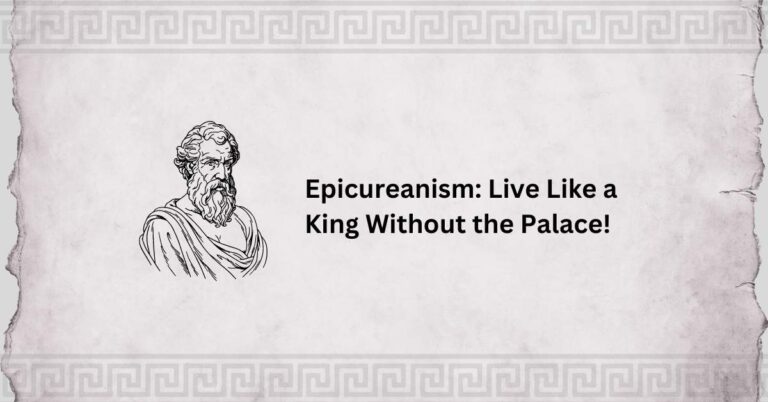Consequential Thinking: The Perfect Way to Act?
Consequential thinking is when you think about what might happen as a result of your choices before you make them. It’s like considering how your decisions could affect you and others. So, instead of just doing something without thinking, you consider what might happen next and how it could be good or bad. This helps you make smarter choices that lead to better outcomes in the long run.
Importance of Consequential Thinking:
Consequential thinking is very important because it helps you make better decisions. When you think about the consequences of your actions before you do them, you can avoid making mistakes or causing problems for yourself and others. It’s like planning ahead to make sure things turn out okay. Plus, by considering the outcomes of your choices, you can make choices that lead to good results and avoid ones that could lead to trouble. So, by practicing consequential thinking, you can be more responsible and make choices that help you succeed in the long run.
Understanding Consequential Thinking
- How Consequential Thinking Differs from Other Types:
Consequential thinking and consequentialism are connected concepts, albeit in slightly different contexts. Consequentialism is an ethical theory in philosophy that evaluates the morality of actions based on their consequences. It asserts that the rightness or wrongness of an action depends solely on the outcomes it produces, rather than the intentions behind it or any intrinsic qualities.
Consequential thinking refers to the process of considering the potential outcomes or consequences of actions before making decisions.
Consequential thinking is different from other types of thinking because it focuses on considering the outcomes of your actions before you take them. Let’s compare it with some other ways of thinking:
1. Reactive Thinking:
– Reactive thinking is when you act without thinking about the consequences.
– It’s like reacting to a situation without considering what might happen next.
2. Impulsive Thinking:
– Impulsive thinking is when you act based on sudden urges or desires.
– It’s like doing something on a whim without thinking about the long-term effects.
3. Short-Term Thinking:
– Short-term thinking is when you only consider the immediate benefits or consequences of your actions.
– It’s like focusing on what feels good or convenient right now, without thinking about the future.
4. Strategic Thinking:
– Strategic thinking is when you plan your actions to achieve specific goals or outcomes.
– It’s like thinking ahead and considering different options to reach the best possible result.
5. Critical Thinking:
– Critical thinking is when you analyze and evaluate information to make informed decisions.
– It’s like questioning assumptions and considering different perspectives before making a judgment.
Consequential thinking stands out because it encourages you to weigh the potential outcomes of your choices and consider their impact on yourself and others. Instead of acting impulsively or reactively, consequential thinking helps you make thoughtful decisions that lead to positive results in the long run.
3 steps of Consequential Thinking:
Consequential thinking is a crucial skill for effective problem-solving and decision-making, especially in complex situations. Here’s how you can practice consequential thinking in three steps:
1. Identify the Decision to be Made
- Begin by clearly defining the decision you need to make. This involves understanding the situation at hand and pinpointing exactly what choice is before you. It could be anything from deciding whether to undertake a new project, resolving a conflict, or making a personal life choice. The key is to be as specific as possible about what the decision entails.
2. Consider the Potential Outcomes
- Next, brainstorm all possible outcomes of each decision option available to you. This step requires you to think ahead and imagine the various scenarios that could unfold from each choice you could make. Consider both the short-term and long-term consequences, as well as who might be affected by your decision. It’s important to evaluate not only the positive outcomes but also the negative ones, no matter how unlikely they may seem.
3. Evaluate and Decide
- Finally, weigh the outcomes you’ve identified against your values, goals, and the potential impacts on others. This step involves assessing which decision aligns best with what’s important to you and the broader context you’re operating within. It may also require you to consider how feasible each option is, based on the resources and information you have available. Once you’ve evaluated the options, make your decision with a clear understanding of its potential consequences.
Consequential thinking is not just about avoiding negative outcomes; it’s also about maximizing positive ones for yourself and others. By practicing this three-step process, you can improve your decision-making skills and navigate complex situations more effectively.
Examples of situations where consequential thinking is crucial:
- Making Financial Decisions:
When deciding how to spend or invest money, it’s important to consider the long-term consequences. For example, thinking about saving for the future versus spending impulsively on immediate wants can have a significant impact on your financial stability over time.
- Choosing Friends and Relationships:
Before forming friendships or entering into relationships, it’s essential to think about how these connections might affect your well-being and future goals. Considering factors such as compatibility, trustworthiness, and shared values can help avoid potential conflicts or negative outcomes down the road.
- Career Planning:
When making decisions about education, job opportunities, or career changes, consequential thinking is crucial. Thinking about the potential consequences of different paths, such as job satisfaction, salary, and work-life balance, can help you make informed choices that align with your long-term aspirations.
- Health and Lifestyle Choices:
Consequential thinking plays a vital role in health-related decisions, such as diet, exercise, and substance use. Considering the long-term effects of lifestyle choices on physical and mental well-being can help prioritize behaviors that promote health and avoid those that may lead to negative consequences, such as addiction or chronic illness.
- Environmental Conservation:
In matters concerning the environment, consequential thinking is essential for assessing the impact of human activities on ecosystems and future generations. Considering the consequences of actions such as waste disposal, resource consumption, and pollution can guide efforts towards sustainable practices and conservation efforts.
- Ethical Dilemmas:
When faced with ethical dilemmas or moral decisions, consequential thinking helps weigh the potential outcomes and impacts on others. Considering the ethical implications of actions and the principles involved can guide behavior towards choices that uphold integrity, fairness, and respect for others.
In these situations and many others, consequential thinking helps individuals make decisions that consider the potential outcomes and consequences, leading to more informed choices and better overall outcomes in the long run.
-
Benefits of Consequential Thinking:
1. Informed Decision-Making:
– Consequential thinking enables individuals to make decisions based on a thorough consideration of potential outcomes. By weighing the consequences of different choices, people can make more informed and rational decisions that align with their goals and values.
2. Anticipation of Risks:
– By thinking about the potential consequences of their actions, individuals can anticipate and mitigate potential risks. This proactive approach helps to avoid negative outcomes and minimize the likelihood of encountering unexpected challenges or setbacks.
3. Ethical Behavior:
– Consequential thinking encourages individuals to consider the impact of their actions on others and society as a whole. By prioritizing ethical considerations and considering the well-being of others, people can act in ways that promote fairness, integrity, and respect for others.
4. Long-Term Planning:
– Thinking about the consequences of decisions helps individuals to plan for the future and consider the long-term implications of their actions. This forward-thinking approach allows people to set goals, make strategic plans, and take steps to achieve desired outcomes over time.
5. Personal Growth:
– Engaging in consequential thinking promotes personal growth and development by encouraging reflection and self-awareness. By examining the potential consequences of their actions, individuals can learn from past experiences, make adjustments, and continuously improve their decision-making skills.
6. Conflict Resolution:
– Consequential thinking facilitates effective conflict resolution by encouraging individuals to consider the potential outcomes of different courses of action. By evaluating the consequences of their choices, people can identify solutions that address underlying issues and promote positive outcomes for all parties involved.
Overall, consequential thinking empowers individuals to make thoughtful, responsible decisions that consider the potential outcomes and consequences, leading to better outcomes for themselves and others in the long run.
-
How to Develop Consequential Thinking Skills:
1. Reflect on Past Decisions:
– Take time to reflect on past decisions and their outcomes. Consider what worked well and what didn’t, and think about how different choices could have led to different results.
2. Consider Short-Term and Long-Term Consequences:
– Practice thinking about both the short-term and long-term consequences of your actions. Ask yourself how your choices might impact you and others immediately and in the future.
3. Evaluate Potential Impacts on Yourself and Others:
– When making decisions, consider how they might affect not only yourself but also those around you. Think about how your choices could impact your family, friends, colleagues, and community.
4. Think Before Acting:
– Before making decisions or taking action, take a moment to pause and think about the potential outcomes. Consider different options and their likely consequences before moving forward.
5. Seek Feedback from Others:
– Ask for feedback from trusted friends, family members, or mentors on your decision-making process. They may offer valuable insights and perspectives that can help you consider factors you may have overlooked.
6. Practice Problem-Solving:
– Engage in activities that require you to think critically and solve problems. This could include puzzles, brainteasers, or real-life scenarios where you need to consider different options and their potential outcomes.
7. Role-Playing Scenarios:
– Practice consequential thinking by role-playing different scenarios and considering the potential consequences of different actions. This can help you develop the habit of thinking ahead and considering the impacts of your choices.
8. Keep a Decision-Making Journal:
– Keep a journal where you record your decisions and the outcomes that result from them. Reflect on why you made certain choices and how they turned out, and use this information to inform future decision-making.
By actively practicing these strategies, you can develop and strengthen your consequential thinking skills over time, enabling you to make more thoughtful, informed decisions that lead to better outcomes for yourself and others.
Consequential Thinking Activities:
Here are some consequential thinking activities to boost your decision-making skills:
Individual Activities:
- The Newspaper Headline Test: Imagine yourself on the front page of a newspaper! Craft headlines for different choices you’re considering. Which headline best reflects the outcome you desire?
- The “What If?” Game: Pick a decision you’re facing. Ask yourself “What if…?” and explore different potential consequences. Consider both positive and negative outcomes for a well-rounded view.
- The Pro & Con List on Steroids: Make a pro and con list for your choices, but take it a step further. Assign a weight or value to each pro and con based on its importance to you. This helps prioritize what matters most.
Group Activities:
- The Debate Club: Form a mini-debate club! Present a scenario with a decision to be made. Divide into teams and argue for different options, considering potential consequences for each.
- The Role-Playing Challenge: Act out different scenarios related to decision-making. Each person takes on a role and makes choices, then discusses the consequences of those choices within the scenario.
- The Future Vision Board: This is a creative activity for groups. Brainstorm potential outcomes of a decision. Cut out images or write down words that represent those outcomes and create a vision board for each path.
Bonus Activity:
- The Consequence Chain Game: This is a fun group activity. Start with a simple action, like “spilling your coffee.” Take turns brainstorming the consequences, one after another, building a chain reaction. See how far the consequences can lead in a humorous or thought-provoking way!
Conclusion:
Consequential thinking is a vital skill for making informed decisions and considering the impact of our actions on ourselves and others. By practicing consequential thinking, we can navigate life’s challenges more effectively, make choices aligned with our values, and promote positive outcomes. Developing this skill takes time and practice, but the benefits are significant. Embracing consequential thinking empowers us to make thoughtful decisions and navigate life’s complexities with confidence and integrity.



